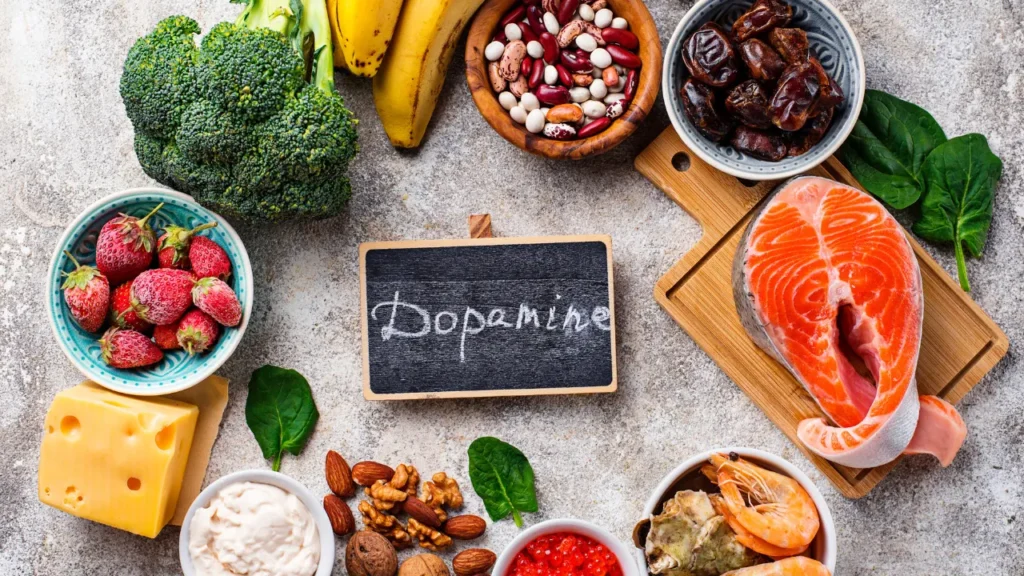The use of nootropics has become increasingly popular in the search for improved cognitive function. Squill stands out as a chemical of interest among the many compounds categorized under this heading because of its potential benefits for cognition, alertness, and focus. This article explores the nature of squill, including its chemical properties, health advantages, recommended dosages, adverse effects, possible interactions with other substances, and suggestions for safe use.
You May Also Like:
Should You Try CBD for Focus? Here Are the Facts.
Diamond CBD Gummies vs. Joy Organics CBD Gummies
Squill: Benefits, Dosage, Side Effects, Drug Interactions, and Other Important Information is an original (NootropicsPlanet) article.
Nature of Squill
A synthetic nootropic substance called squill has been created to enhance mental abilities like motivation, creativity, and memory in healthy people. Scientists and psychologists are interested in squill because, unlike many naturally occurring nootropics, its chemical structure is intended to target specific cerebral regions linked to cognitive processes.
Health Benefits of Squill
The health benefits attributed to squill primarily encompass improvements in cognitive functions such as memory, attention, and learning. These enhancements are crucial for both academic and professional performance, as well as for the maintenance of cognitive health over time. Below are detailed insights into the health benefits of squill:
Enhanced Memory and Learning: Squill may boost both short-term and long-term memory by modifying neurotransmitter systems linked to learning and memory, namely by increasing acetylcholine and glutamate activity. This helps long-term memories to solidify and new information to be absorbed.
Increased Alertness and Attention: Squill’s control over dopamine levels helps to prolong attention spans and promote alertness. This can be especially helpful for tasks demanding prolonged focus and for people with illnesses like ADHD that usually cause focus problems.
Neuroprotection and Cognitive Aging: Recent data indicates that squill has anti-inflammatory and antioxidative qualities that may provide defense against neurodegenerative diseases. This neuroprotective impact may be able to postpone the beginning of neurodegenerative disorders such as Alzheimer’s and age-related cognitive decline.
Mood and Well-being: Squill may also have a positive impact on mood and overall sense of well-being through its interaction with dopaminergic pathways. This is also indirectly beneficial for cognitive performance and quality of life.

Chemistry of Squill
The synthetic structure of squill is intended to selectively interact with neuronal pathways that are essential to cognitive function. Squill’s molecular makeup is designed to improve its permeability across the blood-brain barrier, ensuring significant bioavailability within the central nervous system. The permeability of squill may be better than standard nootropics produced from natural sources due to the modifications in its chemical structure. This feature is essential since it establishes how well squill enters the brain to provide the desired effects.
The feature that is introduced in the previous paragraph is the fundamental property of squill, which precisely targets receptors and neurotransmitter-related enzymes to modify neurotransmitter activity through a structure-function link. Because of the chemical makeup of the substance, it can imitate or affect the activity of neurotransmitters that are critical to cognitive functions, including glutamate, acetylcholine, and dopamine.
Moreover, squill’s superior chemical design is demonstrated by its stability under physiological settings. The stability of the chemical is of utmost importance as it guarantees its prolonged potency without succumbing to early metabolization or degradation. Squill’s chemical characteristics, such as its solubility and metabolic stability, are maximized to maximize its cognitive-boosting effects while reducing the possibility of harm.
Physiological Mechanism of Action of Squill
The primary physiological mechanism by which squill enhances cognitive function is associated with its interaction with important neurotransmitter systems in the brain. Squill may affect memory, attention, and learning, among other aspects of cognitive function, by adjusting the activity of certain neurotransmitters.
Acetylcholine Modulation: The main way that squill improves cholinergic signaling is by making more acetylcholine available in the synaptic cleft. The mechanisms of memory and learning depend on this neurotransmitter. Squill may enhance synaptic plasticity which is crucial for memory and learning.
Dopamine Regulation: Dopamine is essential for reward, motivation, and executive function. The way in which squill interacts with dopaminergic pathways has the potential to boost motivation and attentional control by amplifying dopaminergic signals. The general feeling of well-being and increased drive to finish tasks can also be attributed to this dopamine modulation.
Glutamate Interaction: Glutamate is the main excitatory neurotransmitter in the brain and is necessary for both synaptic plasticity and transmission. Glutamatergic receptor modulation by squill may promote learning and neuronal plasticity. The creation of new memories and the brain’s ability to process new information depend on this process.
Squill’s ability to selectively increase cognitive functioning without serious side effects is made possible by its specificity to the components of the neurotransmitter systems. Squill’s activity is highly selective and effective in that it supports neuronal plasticity and balances the neurotransmitter levels to maximize cognitive function, which are the two physiological prerequisites for cognitive enhancement.

Optimal Dosage of Squill
The key to maximizing squill’s advantages and reducing hazards is figuring out the right dosage. Individual factors like body weight, metabolism, and general health might have a significant impact on dosage. Clinical research generally recommends a range of dosages that respect safety limits and optimize the effects of cognitive improvement. To evaluate tolerance, it is suggested to begin with smaller dosages and increase gradually due to the variability in individual responses.
Side Effects of Squill
While squill is designed to be safe within certain dosages, potential side effects can occur, especially if taken inappropriately. Common side effects include:
- Headache: Likely due to increased neurotransmitter activity and changes in blood flow within the brain.
- Nausea and Digestive Discomfort: Can occur with any supplement, especially on an empty stomach or at higher doses.
- Insomnia and Sleep Disturbances: Resulting from excessive stimulation, particularly if squill is taken later in the day.
- Anxiety and Irritability: In sensitive individuals or at high doses, anxiety and irritability may occur possibly due to the overstimulation of neurotransmitter systems.

Potential Substance Interactions with Squill
Squill’s interaction with neurotransmitter systems suggests caution when combined with other substances, especially those that affect the central nervous system:
- Other Nootropics and Stimulants: Combining squill with other stimulants or cognitive enhancers could amplify side effects such as insomnia, anxiety, and heart palpitations.
- Medications Affecting Neurotransmitter Levels: Antidepressants, anxiolytics, and other medications that modulate neurotransmitter levels could interact unpredictably with squill, potentially altering their efficacy or side effects.
- Substances Affecting Blood Pressure: Due to its potential impact on neurotransmitter levels, squill could interact with blood pressure medications, either heightening or undermining their effects.
Best Responsible Use with Squill
To maximize the benefits of squill while minimizing risks, adherence to responsible use guidelines is essential:
- Start with Lower Doses: Begin with the lowest effective dose and gradually increase as necessary to assess your tolerance and response.
- Monitor for Side Effects: Pay close attention to any adverse effects, and adjust the dosage accordingly. If necessary, discontinue the use of the supplement.
- Avoid Late-Day Administration: To prevent sleep disturbances, it is advisable to take squill earlier in the day.
- Consult Healthcare Providers: Before starting squill, consult with a healthcare professional, especially if you have pre-existing health conditions or are taking other medications.
- Lifestyle Considerations: Complement the use of this supplement with a healthy lifestyle which includes a balanced diet, regular exercise, and adequate sleep, to support overall cognitive health.
- Cycling Off Periods: To avoid tolerance and dependence, incorporate regular breaks from squill use, such as a week off after every month of use.
Adhering to these guidelines ensures that individuals can benefit from squill’s cognitive-enhancing properties safely and effectively, making it a valuable addition to a broader strategy for improving and maintaining cognitive performance and well-being.
Squill:
Conclusion
If you are looking to improve your thinking skills or brain power, you may wish to look into squill. Squill, as introduced by the above article, is a synthetic nootropic that affects your neurotransmitter levels. Neurotransmitters in your brain such as glutamate, acetylcholine, and dopamine are essential to your cognitive function. Aside from better brain power, this supplement can also boost your motivation, creativity, and memory. Its effectiveness lies in its ability to pass through the blood-brain barrier. When you are using squill, be sure not to take any other medications or supplements that could negatively react with it to prevent undesirable side effects.

References:
- Squill – Uses, Side Effects, and More. Retrieved from:https://www.webmd.com/vitamins/ai/ingredientmono-743/squill
- Therapeutic Aspects of Squill; An Evidence-Based Review. Retrieved from: https://pubmed.ncbi.nlm.nih.gov/30686259/
- Squill Health Benefits, Properties, and Uses. Retrieved from: https://www.curesdecoded.com/products/squill/1095
- An Add-On Treatment for Moderate COPD with Squill-Oxymel (a Traditional Formulation from Drimia maritima (L.) Stearn): A Pilot Randomized Triple-Blinded Placebo-Controlled Clinical Trial. Retrieved from: https://www.ncbi.nlm.nih.gov/pmc/articles/PMC9170410/
Important Note: The information contained in this article is for general informational purposes only, and should not be construed as health or medical advice, nor is it intended to diagnose, prevent, treat, or cure any disease or health condition. Before embarking on any diet, fitness regimen, or program of nutritional supplementation, it is advisable to consult your healthcare professional in order to determine its safety and probable efficacy in terms of your individual state of health.
Regarding Nutritional Supplements Or Other Non-Prescription Health Products: If any nutritional supplements or other non-prescription health products are mentioned in the foregoing article, any claims or statements made about them have not been evaluated by the U.S. Food and Drug Administration, and such nutritional supplements or other health products are not intended to diagnose, treat, cure, or prevent any disease.


